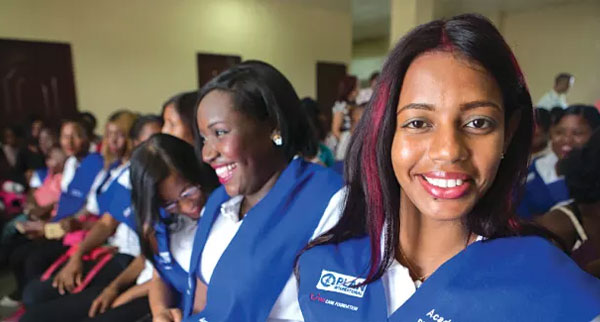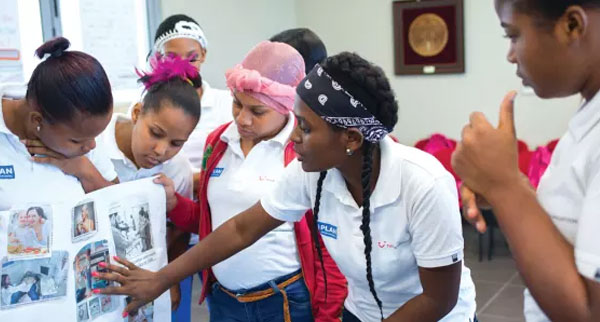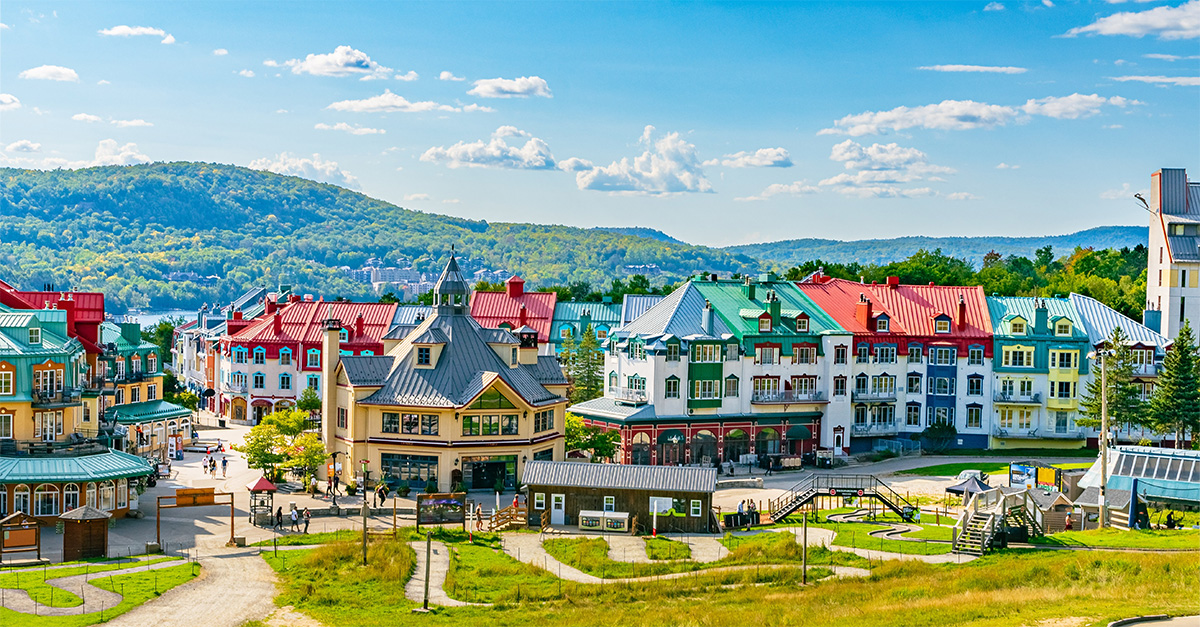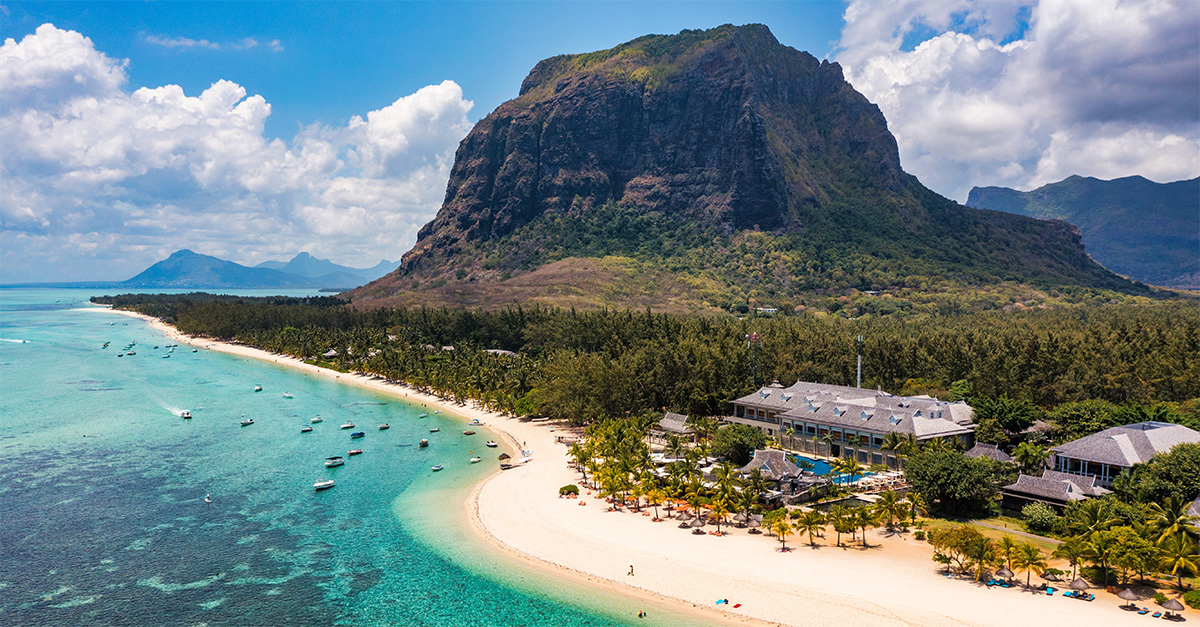Can tourism be a force for good? Meera Dattani reports from a Tui Academy youth training project in the Dominican Republic.
Click here to download and save as a PDF
Most trips to the Dominican Republic don’t begin in a darkened conference room at the Royalton Punta Cana hotel. They tend to involve poolside cocktails, white-sand beaches and clear Caribbean water. But it’s here, in a presentation by the Tui Care Foundation, that another side of the country’s tourism industry comes to light.
Reverberating under the skin of this tourist hotspot are the same problems that affect many developing nations. There’s a lack of prospects for young people, with 30% unemployed, of whom more than two-thirds are female. As in many countries around the world, poverty, early pregnancy and family issues impede the potential of future generations.
The Dominican Republic has the region’s highest child marriage figure and the fifth-highest youth pregnancy rate (about 30% of girls are pregnant by the age of 19), factors which are also responsible for 44% of school dropouts. And without education and employment, many end up in ‘informal’ work, including the sex trade.
These societal problems are far removed from most holidaymakers’ idea of a sun-and-sand escape. But they also make the Dominican Republic, one of Britons’ favourite destinations, a good place to see whether tourism really can transform lives.
Time for change
There are various organisations and NGOs attempting to address the complicated problems here. One initiative is the Tui Academy, a partnership that began last year between the Tui Care Foundation and Plan International.
The Tui Care Foundation was founded in 2011, with operating costs covered by Tui, and supports global projects that empower young people in key tourism destinations, primarily via education and training. Plan International focuses on advancing children’s rights and, in particular, equality for girls.
“As the travel industry knows, tourism can be a powerful way to bring opportunity – and money – to local communities.”
The Tui Academy is also linked to Down to Zero, an initiative funded by the Dutch Ministry of Foreign Affairs to fight the sexual exploitation of young people in holiday destinations. As the travel industry knows, tourism can be a powerful way to bring opportunity – and money – to local communities, which is why the Tui Care Foundation set up the academy here.
Elise Allart, executive director of programmes and operations, says: “We started it to address the high youth unemployment, especially among young women. So many are already mothers – some have several children by the age of 18. The teenage pregnancy rate is about twice the global average.”

Hope for the future
My trip to the Dominican Republic is a chance to see the Tui Academy in action. The three-year project aims to bring education and employment in tourism to 150 young people from deprived communities near Punta Cana, with 70% of the places reserved for girls. Day care is provided as many are young mothers.
All stints include three months’ vocational training and an internship at Blue Diamond resorts in housekeeping, bartending or as kitchen assistants.
On completion, students receive certification from Infotep, the country’s official institute for vocational training, after which Tui Academy graduates receive working contracts of at least six months.
At the conference some of the students talk about their experiences on the programme. For some, even getting accepted was a challenge due to family pressures or bureaucratic reasons such as not having an ID card.
“These are the sort of opportunities that have often bypassed local young people, as many tourism companies advertise for specific skills.”
One student, Francesca, tells us: “For me, the best thing is the support I’ve had. Spending time with people who have a good heart and giving me hope for the future.”
These are the sort of opportunities that have often bypassed local young people, as many tourism companies advertise for specific skills or through media they don’t use.
Maria, another student, is particularly passionate about her new bartending skills. “That’s my speciality, I love making drinks,” she says.
She’s also ambitious. “Since I was little, I wanted to be a civil engineer. My parents can’t pay, but now I feel things are possible,” she adds.
For Jason, it’s been a way out of unemployment. “It’s been hard to find a job and study at the same time. Mostly, I have to stay at home and do nothing.”
And for single mother Lucia Francesa, it’s opened doors. She says: “I have a baby who is a year and five months old, but this has motivated me.”
Another girl, whose shyness prevents me naming her, says: “I love that my family problems stay at home. I can have fun with my colleagues and not mix the two.”

Life lessons
Training also includes life skills provided by Plan International, which has a grassroots presence in the communities and, as a result, is integral to the programme.
We see this in action in a church hall in Higuey, the capital of La Altagracia province, outside the tourist enclave of Punta Cana. Students role-play common situations, such as family resistance to them going to work or husband-and-wife issues. But the focus is on solutions and solidarity.
In a mobile cooking kitchen, we see chef Candido teaching the students in a Kitchen Aid class. He has 40 years of experience in the restaurant and retail trade, and is now passing on his skills to these enthusiastic teenagers.
They whip up a vat of tipile, similar to the Lebanese tabbouleh, with onions, celery, tomatoes, olive oil and bulgar wheat. It’s delicious.
Other lessons cover sexual and reproductive health, employee rights, work safety and financial literacy.
The students also pick out newspaper cuttings that show the stereotyping of women, reminding both boys and girls that they’re not tethered by their gender to any one role in life. It’s heartening stuff.
“The scheme came full circle as the first 46 graduates from the Dominican Republic programme completed the course and started putting their new skills into practice.”
For those who question such initiatives – and some courses are no doubt less effective than others – seeing them in action goes some way to show the difference these projects can make.
One girl tells us that as her mother wouldn’t look after her children, she wasn’t going to apply for Tui Academy – until she found out the programme offered daycare.
“It’s been hard with a three-year-old and a two-year-old, but I’m not going to leave it,” she says.
The Tui Academy also supports other projects. In Namibia, it provides 20 female football players with hotel management training scholarships, so they can support their sporting commitments; this in a nation where female unemployment is 50%. The Tui Care Foundation sponsors other schemes too, ranging from bike tour guides in Morocco to traditional winemakers in Lanzarote.
In April this year, the scheme came full circle as the first 46 graduates from the Dominican Republic programme completed the course and started putting their new skills into practice with 24 already employed in Tui Blue Diamond hotels.
What all this means for the future, it is far too early to say. But these grassroots programmes look promising – and certainly feel much-needed in a nation where the rich-poor divide remains stark.
Read more
Why Zambia could be the perfect choice for a sustainable safari
Five of the best ethical initiatives worldwide
Responsible tourism: What’s the next big issue?




